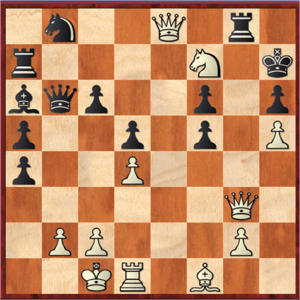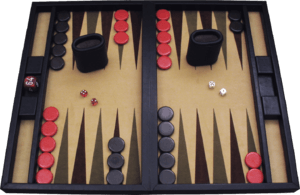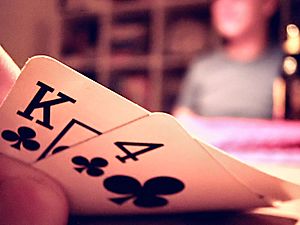Perfect information facts for kids

Imagine playing a game where you know everything that's happening! In the world of games and business, this idea is called perfect information. It means that everyone involved knows all the important facts.
Think about a game like chess. Both players can see all the pieces on the board. They know exactly where every piece is and what moves are possible. This is a game with perfect information because there are no hidden secrets.
In business, perfect information would mean that everyone buying or selling something knows all the prices, all the qualities of products, and all the costs. It's like having a superpower to know everything about the market right away!
Perfect information is different from something called complete information. Complete information means everyone knows the rules of the game and what each player wants to achieve. A game can have perfect information without having complete information, but often they go together.
Contents
Perfect Information in Games

Many popular games have perfect information. This means that when it's your turn, you know everything that has happened before. You don't have to guess what your opponent did or what cards they have.
Some examples of games with perfect information include:
Games Without Perfect Information

Not all games have perfect information. In some games, players keep secrets. For example, in card games like poker or bridge, each player has cards that others cannot see. This is called imperfect information because you don't know everything.
Games where players make their moves at the same time also usually have imperfect information. This is because you have to choose your move without knowing what your opponent is doing right then. A good example is rock–paper–scissors. You pick your hand shape without knowing what your friend will pick.
Chance and Perfect Information
Some games include chance, like rolling dice, but can still be seen as having perfect information. In games like backgammon or Monopoly, you might roll dice, but there are no hidden cards or secret moves. Everyone sees the dice roll.
However, some experts disagree. They say that if chance is involved, and you don't know the outcome of the chance event before it happens, then it's not truly perfect information. It depends on how you define it!
Perfect Information in Business
In the world of business and money, perfect information means that everyone involved in buying and selling knows everything.
- Buyers know all the prices from every seller.
- Buyers know the exact quality of every product.
- Sellers know what every buyer is willing to pay.
- Sellers know what their competitors are charging.
This idea is part of something called "perfect competition." In a perfectly competitive market, everyone has all the facts instantly. This helps make sure prices are fair because no one can hide information to get an unfair advantage.
See also
 In Spanish: Información perfecta para niños
In Spanish: Información perfecta para niños

